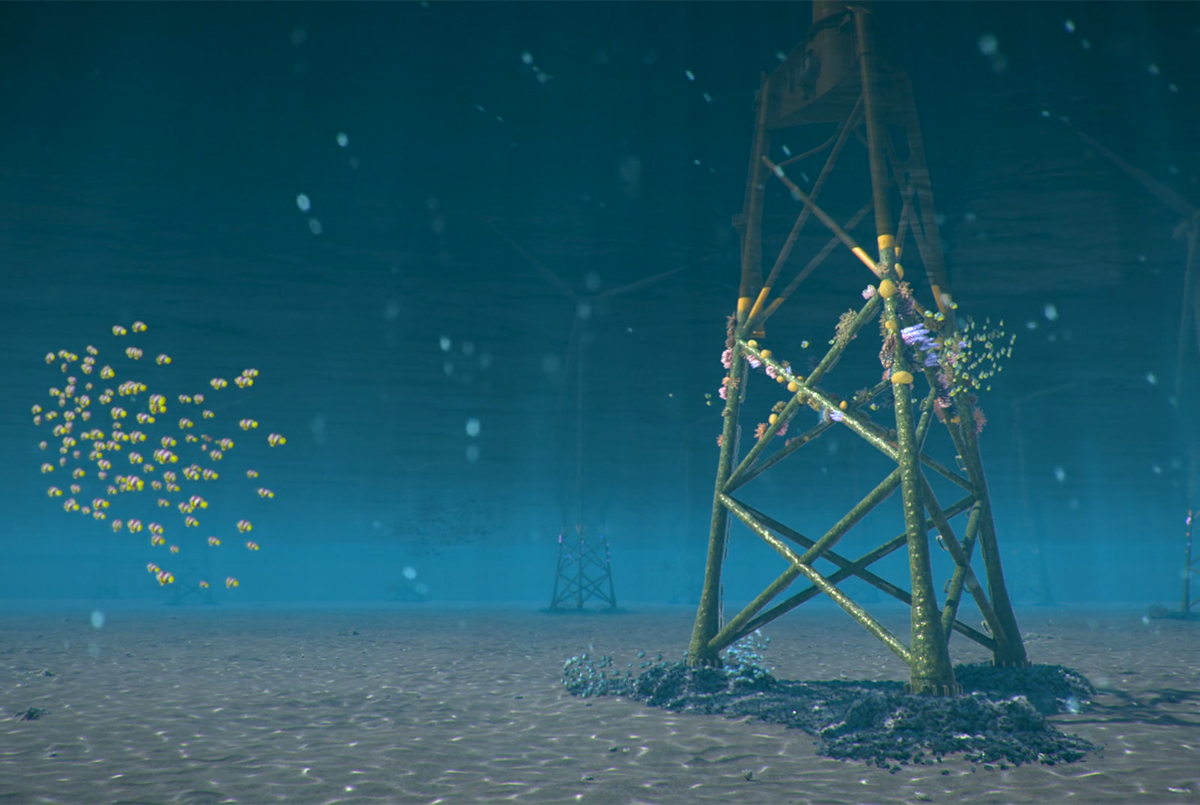Ørsted plans to trial growing corals on turbines at a Taiwanese offshore wind farm.
The firm, with Taiwanese partners, will begin the trial on four turbines in Taiwan’s 605MW Greater Changhua 1 wind farm this summer to see whether corals can be successfully grown on offshore wind turbine foundations. It will then assess whether the process can be scaled up — and what its impact on biodiversity could be – as part of its planned ReCoral project.
The Danish developer currently has no timescale for when it might start scaling up this approach, but believes its understanding of growing coral on turbine foundations will develop in the coming years.
A spokesperson told “uåX˜äŠÊ˜·³Ç: "We will only seek to scale-up the ReCoral methodology if local stakeholders and relevant government authorities are supportive, and if further studies determine that scale-up presents a reasonable prospect of delivering ecologically meaningful reef-restoration outcomes. A final decision on a preferred scale-up location is unlikely to be made before 2025."
Climate change is causing rising sea temperatures to rise and is creating a possible bleaching effect that can harm coral reefs — home to a third of all marine species — causing biodiversity loss, according to Ørsted.
The developer said the expansion of offshore wind power needed to help fight climate change by displacing fossil fuels can also support marine ecosystems. CEO Mads Nipper said: “I’m confident that if done right, the offshore wind build-out can support and enhance ocean biodiversity.”
The idea behind the ReCoral project is that “the relatively stable water temperatures at offshore wind farm locations will limit the risk of coral bleaching and allow healthy corals to grow on wind turbine foundations”. Ørsted teamed up with coral experts in 2020 to develop the concept and last year successfully grew corals on steel and concrete at a test facility.
The next stage, from June, is for a proof-of-concept trial in open waters on offshore wind turbine foundations. If successful, the ultimate aim is to scale up and use coral larvae to restore reef systems in shallow waters.
Ørsted and Taiwan’s Penghu Marine Biology Research Centre have developed a “non-invasive methodology for coral seeding, in vitro fertilisation, larvae transport and larvae attachment to wind turbine foundations”, which does not involve removing anything from existing coral ecosystems. The Danish firm said the concept could be used on any kind of offshore foundations in tropical waters.
Contractor Van Oord launched a related trial at the Luchterduinen wind farm in the Dutch North Sea in 2018 with artificial reefs around wind turbine bases to enhance marine life.




.png)
HR.jpeg)
.png)








